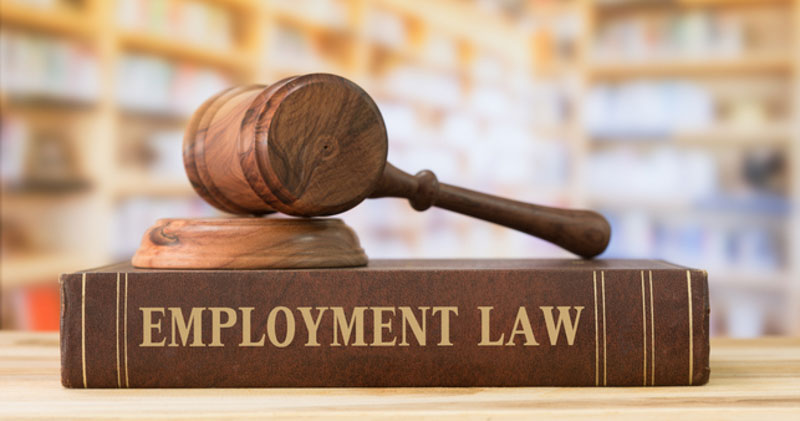
Some visitors to Australia are permitted to work in Australia provided they have the right visa. Different types of visas are issued by the Australian Government Department of Home Affairs depending on the circumstances. As an employer you need to make sure anyone you are thinking of hiring can legally work in Australia. Different visa holders have different working rights that you need to be aware of.
Someone can work in Australia if they:
they are an Australian citizen, or a permanent resident, or a New Zealand citizen on a special category of visa; or
they hold a valid visa with permission to work.
Employers can employ or sponsor skilled migrants with overseas passports that are already in Australia and have a visa to work, or sponsor someone already in Australia on another kind of visa that doesn’t allow them to work provided they have the right skillset. Alternatively, you can sponsor skilled workers to come to Australia to work in your business.
Visa holders who are already in Australia may have restrictions on their visa. For example, they may only be allowed to work for one employer for a limited time, or perhaps only work a certain amount of hours per week, or in a certain place, or doing a particular job. International Students for example may be able to get a visa type that allows them to do workplace training subject to restrictions e.g. the visa may only allow them to work a limited amount of hours per fortnight.
Only Australian citizens, permanent residents and New Zealand citizens holding Special Category (subclass 444) visas generally have no conditions placed on working in Australia, though permanent residents and New Zealand Citizens may not be able to hold certain Federal Government positions.
Hiring Overseas Employees In Australia
As an employer, you have a legal obligation to make sure that any overseas employee you hire – whether they already live here, or you plan to bring skilled overseas workers into the country – are legally allowed to work in Australia.
If they already live here and are not Australian Citizens, they may be permanent residents or New Zealand Citizens on a special class of visa that allows them to remain in Australia indefinitely. Alternatively, they may have a temporary visa that allows them to work. You can check their visa conditions through the Department of Home Affairs’ online verification system (VEVO).
In all cases, a visa holder must have a valid working visa the entire time that they are working for you.
Remember that all overseas employees you hire are entitled to the same minimum workplace rights and entitlements as Australian workers, including pay rates, overtime and penalty rates, superannuation, and more.
Employer Sponsored Visas To Australia
If you can’t find anyone in Australia with the right skills and experience for a job, you may wish to employ a skilled worker currently living overseas by sponsoring them to come to Australia. You can sponsor workers temporarily or permanently, however there are costs involved which are the employer’s responsibility. Skilled workers must generally be on the Skilled Occupations List, and visa holders can work only for you while you sponsor their visa.
When you sponsor migrant workers you have certain obligations to them and to the Australian Government Department of Home Affairs, for example to keep your business details up to date and to make sure the employee is still on a valid visa. Some of these obligations might continue even after the visa holder stops working for you.
There are a number of ways to sponsor a skilled migrant worker:
Sponsor a skilled worker for permanent migration through the Employer Nomination Scheme (ENS) or the Regional Sponsored Migration Scheme (RSMS) if your business is in regional Australia;
Sponsor a worker on a temporary visa through the Temporary Skill Shortage visa (subclass 482), which allows overseas people to come to Australia to work for up to 4 years;
Take over the sponsorship of temporary migrants already in Australia on skilled work visas;
Enter a labour agreement that allows you to employ a number of overseas skilled workers on a permanent or temporary basis by entering a formal labour agreement with the Australia government if the job is not on the Skilled Occupations List;
As of 19 April 2017, the temporary skill shortage visa (subclass 482) replaced the old Australian temporary skilled work (subclass 457) visa. However, any existing holders of the 457 visa are unaffected by these changes.
The purpose of these the sponsored skilled worker visa subcategories is to fill certain skill shortages in the labour market, help employers easily find and sponsor suitably skilled workers, and increase the level of accountability for employers.
Visa conditions for some categories of sponsored skilled migration visas include an employer obligation to demonstrate that they can’t find anyone in Australia suitable for the role. Given the effects of COVID-19 on the Australian workforce, where many employees have been made redundant or had their hours cut, the Department of Home Affairs will be paying particular attention to make sure job opportunities for Australian workers are not impacted by migrant workers coming from overseas.
Check Workplace Rights Of Visa Holders And Conditions
Under the Migration Act 1958 and Migration Regulations 1994, employers have a legal obligation to ensure non-Australian citizens have a right to work in Australia.
Visa Entitlement Verification Online (VEVO) is a free-to-use online visa verification platform set up by the Department of Home Affairs. The platform lets visa holders, employers, education providers, and other organisations quickly and easily check the visa conditions of a non-Australian citizen.
Below are the following documents you can use to check the visa status of an applicant:
Document for Travel to Australia (DFTTA)
ImmiCard
Passport
PLO56 (now replaced with ImmiCard)
Refugee travel document (Titres de Voyage)
Keep in mind VEVO can only provide information about people who have their details available in the VEVO system. A workers’ details may not be in the VEVO system if they migrated to Australia before 1990 and they have not travelled outside of the country since. When this happens, you can ask the candidate to apply for an electronic visa record before you hire them.
Minimum Rights At Work
All workers in Australia have the same rights and protections at work, regardless of citizenship or visa status.
Employers must comply with Australian immigration and workplace law, which for most employers is generally the Fair Work Act 2009 which contains the National Employment Standards and provisions for industrial instruments that set out minimum workplace rights and entitlements for employees.
Employers have an obligation to:
pay employees the right rate for all time worked;
provide employees with payslips, superannuation and taxation documents;
provide a safe workplace;
provide employees with entitlements such as pay rates and leave.
Our BrightHR software can help you keep track of employee workplace entitlements.
BrightHR helping you manage your people and business
Contact us to find out how BrightHR people management software and help you manage and store your essential employee records and documents.
Pay And Conditions
All workers in Australia have rights and protections at work. Migrant workers in Australia and visa holders also have these workplace rights and entitlements.
Pay rates and workplace conditions are set by Australian legislation, generally the National Employment Standards and Industrial Instruments such as Modern Awards and registered agreements set out in the Fair Work Act 2009. These rights can’t be taken away by contracts or agreements.
Employees working in certain industries or occupations covered by an award or registered agreement will be entitled to minimum award pay rates and conditions depending on their skill level and education, and the job they do.
If the migrant worker is not covered by an award or registered agreement then generally the national minimum pay rate for employees covered by the national workplace relations system will apply, as will the National Employments Standards embedded in the Fair Work Act will apply.
Employsure can help you understand your migrant workers and visa holders’ workplace rights and entitlements. Call us now for free initial advice on 1300 651 415.
Get Workplace Advice Now
Call Our Team of Expert Advisers Who Will Help You with Your Workplace Questions.
Frequently Asked Questions
How Do I Employ An Overseas Employee?
- Check if the person is an Australian citizen, Australian permanent resident or a New Zealand citizen
- Check through VEVO if they have a visa that allows them to work
- Check the visa conditions and ensure the visa is valid for the time you are employing them, for the job you want them to do.
- Check your responsibilities to the employee in terms of working conditions and entitlements, which will generally be determined by the National Employment Standards. Modern Awards and registered agreements provided for in the Fair Work Act 2009.
How Do I Sponsor Someone To Work In Australia?
There are different requirements depending on the visa that applies to the skilled worker. Generally, the following steps will apply:
- An employer will need to show that they can’t find someone already in Australia to do the job.
- The job or skillset required for the job must be on the skilled occupations list.
- You must find a visa that suits your needs and those of the employee.
- Check that you are able to sponsor the employee.
- Apply to become a sponsor.
- Nominate the occupation.
- Complete the visa application.
How Long Can An Employee Stay In Australia On A Working Visa?
It will depend on the type of visa. A sponsored temporary skill shortage working visa. for example, generally only allows the worker to stay for up to four 4 years.
Can Visa Holders Get Centrelink?
Whether a visa holder can get Centrelink Payments depends on the visa category that they hold. Some temporary visa holders may be eligible for some types of payments. For more information contact Services Australia (Centrelink).
Are Visa Holders Eligible For Jobkeeper?
Whether a visa holder can get JobKeeper depends on the visa category that the employee holds as well as other employee and business eligibility factors. Generally, temporary visa holders will not qualify for JobKeeper. For more information contact the Australian Tax Office (ATO).
What Is A Foreign Migrant Worker?
The Department of Economic and Social Affairs of the United Nations Secretariat defines a Foreign Migrant Worker as:
“Foreigners admitted by the receiving State for the specific purpose of exercising an economic activity remunerated from within the receiving country. Their length of stay is usually restricted as is the type of employment they can hold. Their dependents, if admitted, are also included in this category.” (UN SD, 2017).
How Many Migrant Workers Are There In Australia?
The Australian Government Department of Home Affairs’ annual report 2019-2020 on migration trends explains that migration has been impacted by COVID-19 and the number of visa holders has decreased. In the 2019–20 financial year, there were 95,843 permanent skilled migration visas granted; 149,249 Working Holiday Maker visas; and 55,060 Temporary Resident (Skilled Employment) visas.
The information in the above article has been compiled on the basis of general information current at the time of publication. Please note that the contents of this article and website and any information provided by our Fair Work Help Line do not constitute legal advice and are not intended to be a substitute for legal or other professional advice and should not be relied upon as such. Your specific circumstances or changes in circumstances after publication may affect the completeness or accuracy of this information. You should seek legal advice or other professional advice in relation to any particular matters you or your organisation may have. To the maximum extent permitted by law, we disclaim all liability for any errors or omissions contained in this information or any failure to update or correct this information. It is your responsibility to assess and verify the accuracy, completeness, currency and reliability of the information on this website, and to seek professional advice where necessary. Nothing contained on this website is to be interpreted as a recommendation to use any product, process or formulation or any information on this website. For clarity, Employsure does not recommend any material, products or services of any third parties.


